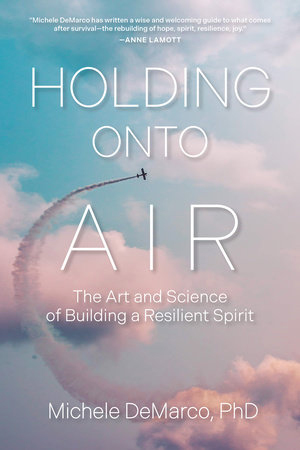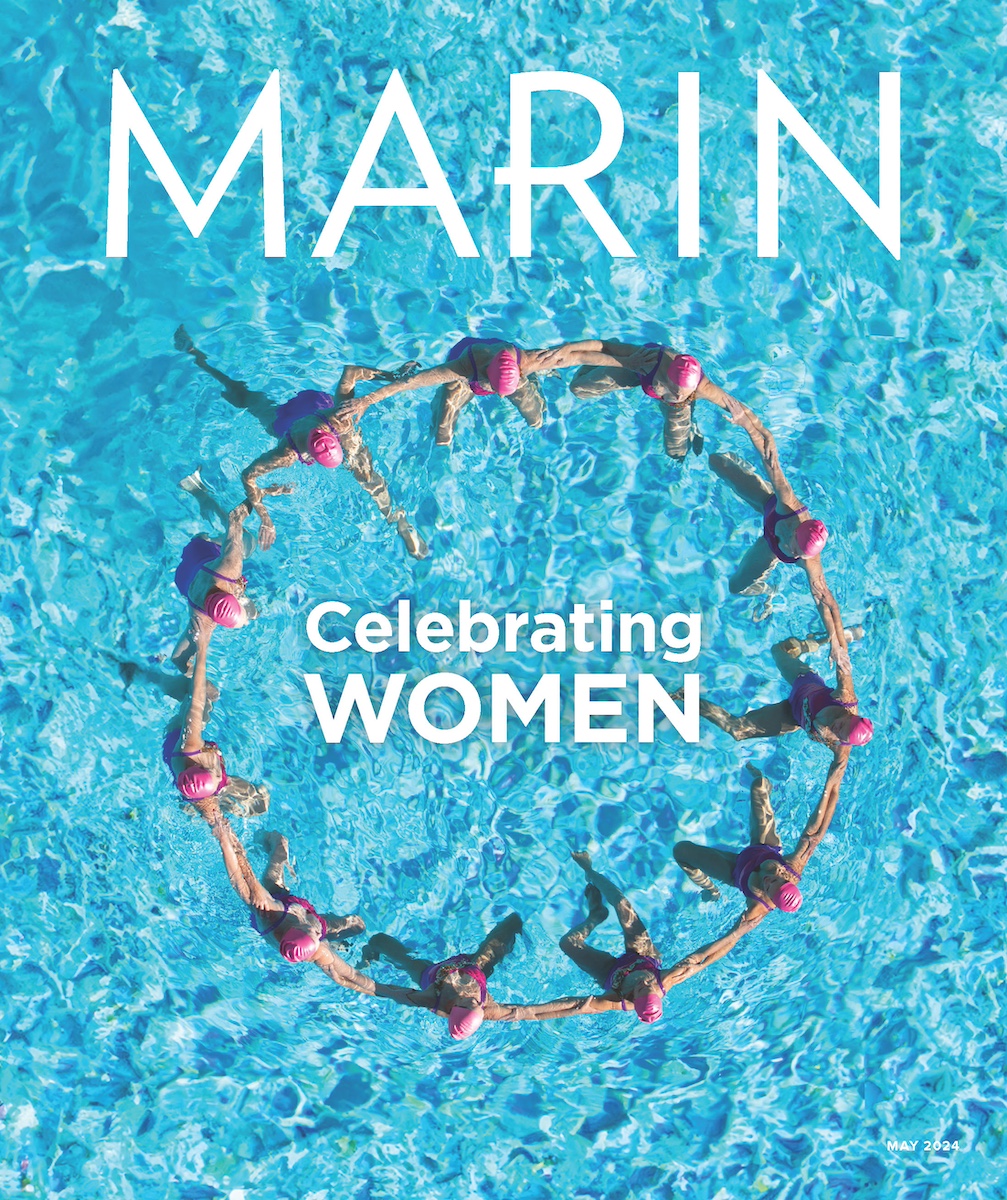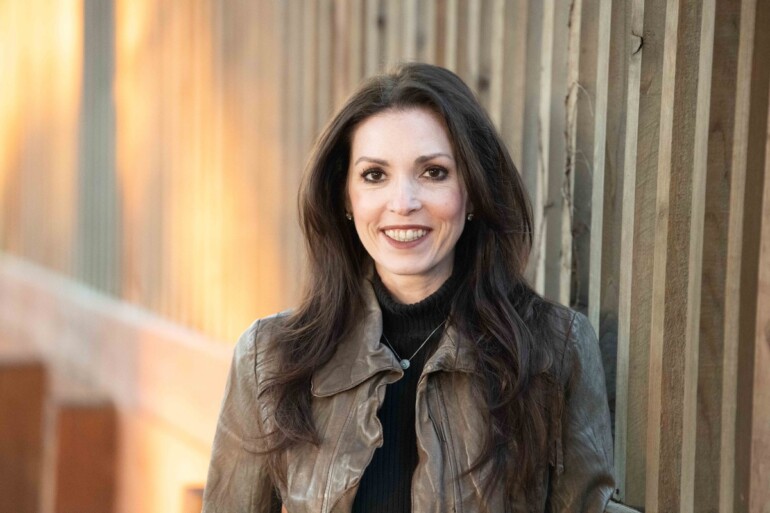
What happens when an author with a PhD in Psychology, master’s degrees in World Religion & Ethics and Culture & Conflict, who’s also a conflict transformation practitioner and therapist, has two rare heart attacks in one week at age 33 (and a third a decade later) — which calls into question everything she’s studied and practiced over two decades?
She writes a book.
Holding Onto Air illuminates the dual nature of loss — the science behind it and art of transforming it. With poignant wisdom and refreshing insight DeMarco explodes traditional myths of resilience and shows what it takes to thrive through any of life’s challenges.
Leveraging advances in emotion science, somatic psychology, neuroscience, and trauma, Holding Onto Air brings the body and spirit into the solution, as much as the mind, and so presents a truly integrated, “whole person” approach to recovering from lost innocence and building resilience.
Here, Kimberley Cameron, Dr. Michele DeMarco’s literary agent, talks to the author about her new book.
How did this book come to be?
It’s been a long time in the making! Two decades to be specific, back to my early days studying world religion and philosophy, comparative culture and conflict, and psychology and relational therapy. It started out as a bold little handbook for grief and loss — something to overcome the tendency of many “self-help” books to offer merely rudimentary maps for navigating grief and loss’s rocky terrain, with tired tropes and shop-worn strategies, often about “being positive” and “thinking happy thoughts.” And then on the heels of graduation, I, at 33-years-old, had two very rare heart attacks in one week, for no good reason, even though I was the pinnacle of health. The whole experience completely turned my world upside-down; I felt like a stranger in a strange land, with the world and everything around me still looking normal but feeling inside as though “normal” was no more. Suddenly, all the study and practice I’d done about the human condition and how people throughout time and across culture build a resilient spirit wasn’t just an intellectual abstraction or someone else’s reality — it was mine, and very personal.
What makes this book different from all the other books on grief and loss — because there are lots of them?
That’s a very good question. The first is its premise — meaningful loss is a dual loss: not only do you lose the thing itself — like a person or relationship, health, security, faith, your moral compass, a job, and so on — but also you lose a part of yourself — your innocence. Holding Onto Air is the first book to situate grief and loss in the concept of lost innocence, taking it out of the world of pathology and approaching it as a natural human struggle.
It’s also different in that it rejects what I call, “beat the grief” philosophies and approaches to healing, like a lot of business-based, positive psychology books tout. These approaches fly in the face of emotion science, which overwhelmingly shows that clobbering difficult emotions and feelings that emerge with rational analyses or artificial meaning serves only to delegitimize them, and this ensures that they never fully metabolize, which prevents people from fully healing.
I further offer a unique and trusted guide for the essential journey of reclaiming your life in the face of lost innocence and building a resilient spirit. Through rigorous research, poignant narratives, and a painstakingly developed framework that includes step-by-step instruction, exercises, mindfulness-based practices, life tips, writing/journaling, and creative inspiration, readers will learn how to see themselves in the fullness of time (or as I refer to it a “coherent sense of time”) and integrate all their experiences to Honor the Past, Transform the Present, and Craft a New Story for the Future (HTC — the name of the framework in this book).
Why do you feel this book relevant today?
Have you seen the news lately?! Our world is on fire with conflict, trauma, pressures, and stressors — from the Covid-19 pandemic to the increasing socio-cultural and economic unrest, climate change and environmental concerns, rapidly changing technology and certain plagues and contagions brought on by social media, and now a new war in the Middle East with further geopolitical tentacles — it’s a very difficult “innocence-draining” time.
Also, a growing body of research shows that resilience rates are down generally, but especially with children, adolescents, and young adults. This is particularly concerning, giving the aging rate of boomers. Individually and collectively, I feel there has never been more of a need for resilience.
Aside from being a “survivor” yourself, tell us what makes you qualified to write this book?
Well, I’m therapist, clinical ethicist, and researcher whose spent the last two decades studying trauma generally, moral injury and lost innocence specifically, and resilience. I’m also a published author on these subjects. I’m one of Medium’s Top Writers for Mental Health and Health, respectively, and the author of the Psychology Today blog “Soul Console: Healing from Moral Injury.” My writing has appeared in national and international publications, including the New York Times, POLITICO, The Boston Globe, The Daily News, Psychology Today, The War Horse, and Medium, among others. I’ve been featured as a psychology and spirituality expert in multiple media. I’ve also taught Creative Nonfiction and Conflict Transformation at California Institute of Integral Studies.
I hold a Ph.D. in Psychology, master’s degrees in World Religion and Ethics, Comparative Culture and Conflict, and Psychology, a bachelor’s degree in religion, and professional certificates in Conflict Transformation and Mediation, respectively. I also studied and practiced Marriage and Family therapy.
So, hopefully I know something of what I speak!
What is the main message you hope readers take away from your book?
That we can’t recreate our lives going backwards, we can only reclaim our life moving forward… And that the same life that (sometimes) brings us pain, also brings us joy.
This is not a book that asks readers to turn lemons into lemonade, or just think happy thoughts as a strategy for healing and living. It helps people to honor their experience of the emotional, spiritual, and existential pain of lost innocence, by finding what I call, “kernels of truth,” that is meaning or insights that a person can carry with them in the present and leverage for the future.
Holding Onto Air also helps people understand how the story they tell about their painful experience influences how they live their life. It further shows them how to identify things like “grievance narratives” that keep us small and hold us back.
Are there any new concepts in your book that you’d like to share?
There are, yes. Here are just a few.
Coherent sense of time: Being able to see ourselves fully in the past, present, and future, and holding each timeframe with equal value and importance.
Benevolent honesty: A clear-eyed, no-rose-colored glasses, no blinders, no exaggeration way to engage with challenge or loss, but doing so with kindness and compassion — an embodied gentleness with ourselves and others as we absorb new realities.
Dynamic balance: Holding contradiction and uncertainty; moving with the forces of life; finding stability amid chaos or change with quiet, intentional surrender.
You share your own story of lost innocence in the book as well, why was that important?
In short, to earn readers’ trust.
The last thing the world needs is another disconnected academic or detached clinician, speaking to people from on high, citing anonymous “cases” to prove their points. Lost innocence is one of the most intimate, emotionally challenging experiences of people’s lives. I felt it was incumbent to include snippets of my own story of lost innocence, both its struggles and successes, as they are, that unexpectedly, forced me to walk along the knife-edge of life — quite literally. I show how the framework works in real life — because I lived it! Moreover, to show how this framework was developed prior to these events, reconsidered in light of them, and updated and tested in broader populations in their wake, both through my research and clinical practice. And lastly, that I’ve been in — and in some ways remain — in the existential trenches with readers.
Why did you call this book Holding Onto Air?
Because grasping for the life we lost, as we do when we lose our innocence, has the same success as trying to clutch the life-giving gas. But even though our hands can’t physically grip air, holding onto it and distributing it, through the process of breathing, is precisely what we do at every moment of our lives. In this way, the vital energy of our spirit is like air to our lungs; it fills us up, makes us come alive, and without it we die.
As one of my readers told me, Holding onto Air is the book that none of us wants on our bedside table or in our digital library, but it’s the one that everyone breathes a huge sigh of relief to see when life throws us into a situation that leaves us wholly and existentially “winded.”
When is the launch date of the book?
The official launch date was January 9, 2024, but it’s available on Amazon now. We’re having a big launch party at Book Passage in Marin on Saturday, February 17 at 1pm. I’ll be in conversation with my amazing agent, Kimberley Cameron and there will be refreshments! We hope to see readers there!
What other projects do you have going?
I have another book coming out in July, 2024 called Writing the Wrongs: A Guided Journal for Healing Moral Injury. Moral trauma, like moral injury and moral distress, is the area of my research. I developed a novel therapy for moral trauma called Embodied Disclosure Therapy (EDT) that integrates body awareness into the writing process. This book makes parts of this therapy available for wider audiences.
In the Black Hours, also an upcoming book, is a collection of photographic vignettes and compendium of life stories that bring readers face to face with the trauma of moral injury. Through long exposure, blurred motion, ethereal light, and high contrast, the accompanying photography creates a piercing visual landscape that captures the raw emotion and lost innocence which moral injury lays bare. The resulting collection is an intimate and visceral look at the heart and soul of moral injury, and honors both the vulnerability and the triumph of the human spirit. It brings to bear over a decade of clinical work and research.
I also offer courses, workshops, and speaking. My website, www.micheledemarco.com has more information on all the above.


